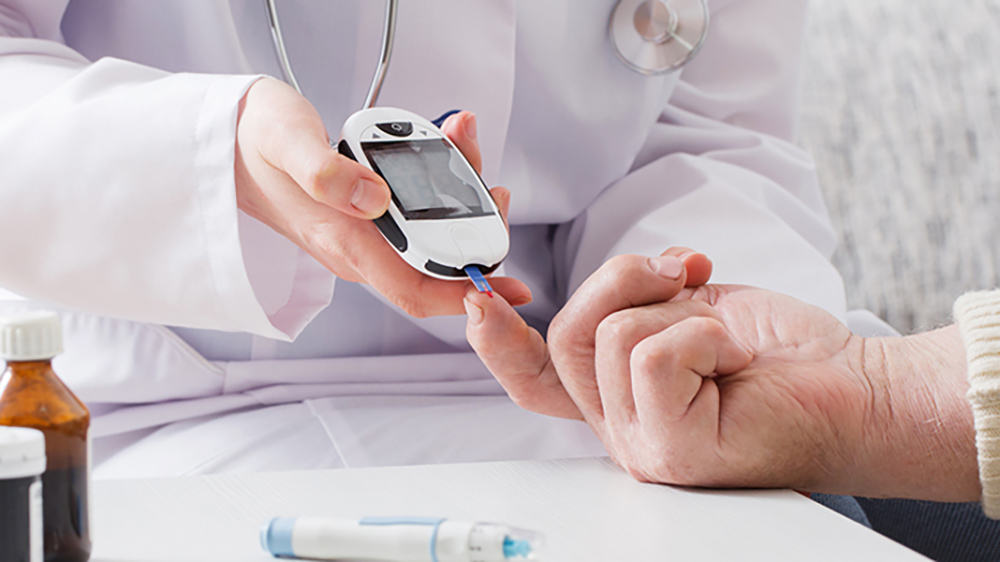By: Zachary T Bloomgarden, MD
In December, a previously unknown virus appeared in Wuhan, a city in central China. By now, more than a hundred thousand people in more than a hundred countries have developed Coronavirus Infectious Disease (COVID-19). More and more, my patients are asking me: What should I do? How serious is this? Can I continue my usual work, can I go out, travel? And how does my having diabetes affect this?
Much of this is not new. Doctors know that viral respiratory infections are serious. Every year, we give influenza and pneumococcal pneumonia vaccinations. Despite this, between 5-15% of the world’s population – perhaps a billion people – get the flu every year, a major cause of pneumonia, leading to as many as a half million deaths. For people with diabetes, this is a real concern. Diabetes almost doubles the risk of pneumonia. Some reports put pneumonia death rates among people with diabetes over age 75 above death rates from cancer or from heart disease.
But coronavirus infections are more severe than those from influenza. Influenza less frequently causes pneumonia, while coronavirus causes a direct inflammatory pneumonia, often with a typical “ground glass” pattern on X-rays. Pneumonia from past coronavirus infections were recognized to be more severe in people with diabetes. In China the epidemic of COVID-19 has particularly affected people with diabetes, even more so in critically ill patients, and diabetes has been associated with very high mortality rates from the infection.
What then should people with diabetes do about COVID-19?
Routine diabetes care is particularly important. Following a healthy diet, exercising regularly, taking medicines on a careful schedule and maintaining blood glucose levels as close to the normal range as possible all make a difference! With poor diabetes control the chance of infection increases – not only for respiratory infections such as the flu, but also for bladder, skin, and abdominal infections.
Some approaches to preventing coronavirus infection seem to be effective. The virus is present in many body secretions, particularly nasal and respiratory secretions – and these particles cause spread of the infection and remain contagious in the environment. It is important to clean and disinfect frequently touched objects and surfaces using a regular household cleaning spray or wipe. Going out and being in meetings or crowds increases the risk of exposure to this highly contagious virus. This includes routine social activities, dining in groups and even visiting friends. Hugging, kissing, shaking hands all can spread infection. Activities with such exposure should be avoided.
Handwashing is an important aspect of hygiene in reducing the possibility of viral passage. Wash your hands often with soap and warm water for at least 20 seconds. If soap and water are not available, the use of disposable wipes with an alcohol-based hand sanitizer containing at least 60% alcohol is effective. Avoid touching your eyes, nose and mouth with unwashed hands. Whether the use of face masks reduces infection is not clear – in Asia, it is considered of great importance, but experts in the US think that there is little role for this other than for healthcare workers, and for people who have cough or increased nasal secretions. If you have a runny nose, wear a face mask – to protect other people! Cover your cough or sneeze with a tissue, then throw the tissue in the trash.
What are the symptoms of the Coronavirus? Often, nonspecific. Fever, cough, and shortness of breath may indicate serious infection – but people with COVID-19 may not appear particularly ill, and in many cases may seem to have no more than “a cold.” As the virus becomes more prevalent, we will have to test many more people with symptoms. Fortunately, the test kits are finally becoming available.
What if one has a coronavirus infection? Be careful to minimize spread to others. Here, using a facemask and handwashing are particularly important. Stay home when you are sick. Self-quarantine also includes staying in a different room from your family members and, if possible, using a different bathroom. Here, maintaining the diabetes treatment plan is particularly important. We know that better blood sugar control reduces diabetes complications: kidney, eye, and nerve damage. We think this applies to the cardiovascular complications of diabetes as well, and many studies suggest that better control will improve the body’s ability to fight infections.
A new concept of diabetes control has been to look at the “time in range” based on continuous glucose monitoring (CGM), the percent of time with blood glucose between 70 and 180 mg/dl, with ideal glucose levels before meals around 100 and after meals around 140. Many people with type 1 diabetes have CGM devices to check this on a regular basis, which have proven a tremendous advance in adjustment of multiple insulin doses. For type 2 diabetes, having a CGM device is usually not necessary, but self-monitoring of blood glucose (SMBG) can allow a good idea of the pattern of diabetes control even when tests are only done once or a few times daily.
Glucose levels often increase with the stress of an infection, or decrease with reduction in appetite, and adjustment in treatment may be needed. This is particularly important with severe coronavirus infection requiring hospital treatment, and the person with diabetes who needs to be in the hospital should stay involved in their diabetes care!
My Chinese colleagues refer to the recommended preventative activities as the “Fives”: “Five No” (No going out, no gatherings, no sedentariness, no stop on medications, no anxiety!), “Five Keep” (keep wearing face mask when going out, Keep the hands clean, keep routine medical checkups when necessary, keep regular lifestyle activities, and keep a scientific attitude to COVID-19), and “Five refuse” (refuse visiting friends, refuse group dining, refuse eating wild animals (not as much of a problem in the US!), refuse rumors, refuse shaking hands, hugging or kissing). These are all reasonable approaches –we all need to follow them, and keep healthy!






